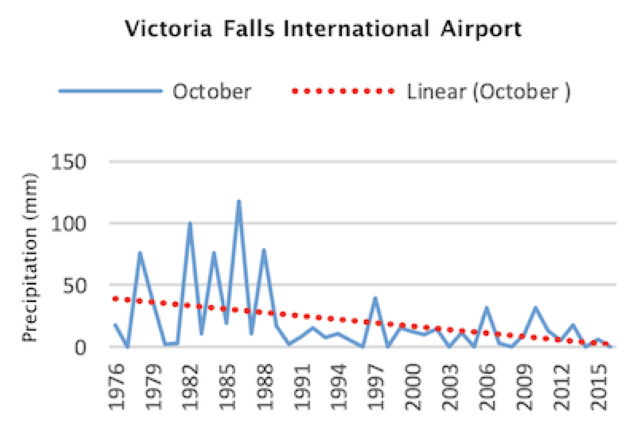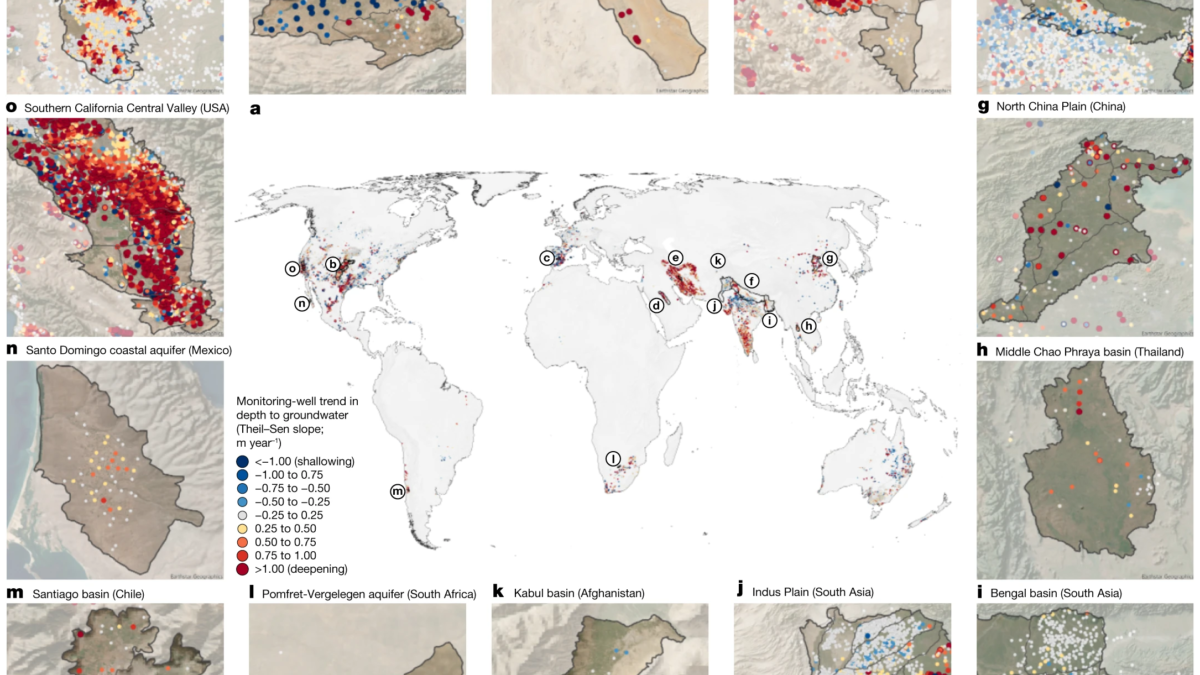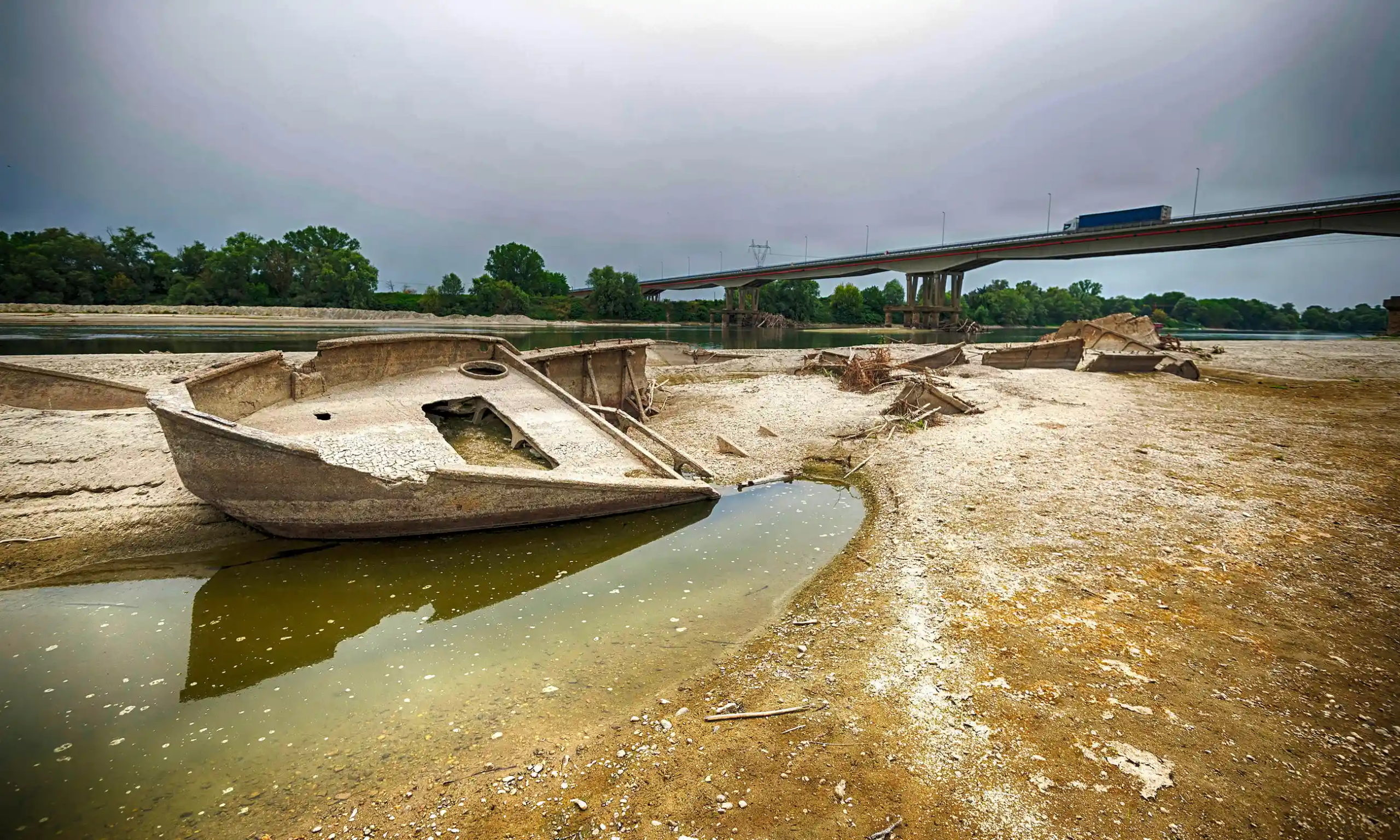Wildfire explodes to third-largest in California history – “We’re seeing truly frightening fire behavior. We really are in uncharted territory.”
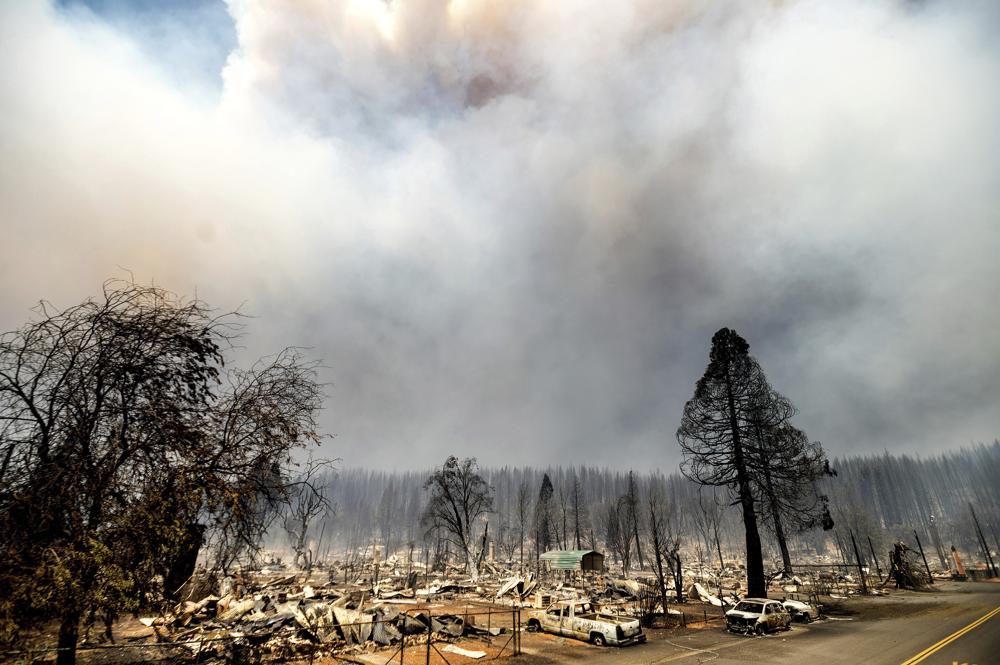
By Daisy Nguyen and Noah Berger
6 August 2021
GREENVILLE, California (AP) – A Northern California wildfire that is now the third-largest in state history had burned for weeks, mostly in remote wildland areas with few people, before it roared through the little mountain community of Greenville, driven by shifting winds and bone-dry vegetation.
Eva Gorman has called the town home for 17 years and said it was love at first sight when she and her husband bought the house where they raised their son.
“We walked up to the front of the house and said ’Oh wow, this is it,” she said, a place where her grandmother’s dining room chairs and her aunt’s bed from Italy fit just right. “You know when you run across something that fits like an old shoe or glove?”
Now the town is in ashes after hot, dry, gusty weather drove the fire through the Gold Rush-era Sierra Nevada community of about 1,000. The blaze incinerated much of the downtown that included wooden buildings more than a century old.
The winds were expected to calm and change direction heading into the weekend but that good news came too late for Gorman. She was told that her home burned down — but is waiting until she can see it with her own eyes to believe it’s gone. …
The Dixie Fire, named for the road where it started, was still raging on Friday after growing overnight by 110 square miles (285 square kilometers), greater than the size of New York City.
“This is going to be a long firefight,” Capt. Mitch Matlow, spokesperson of the California Department of Forestry and Fire Protection, said.
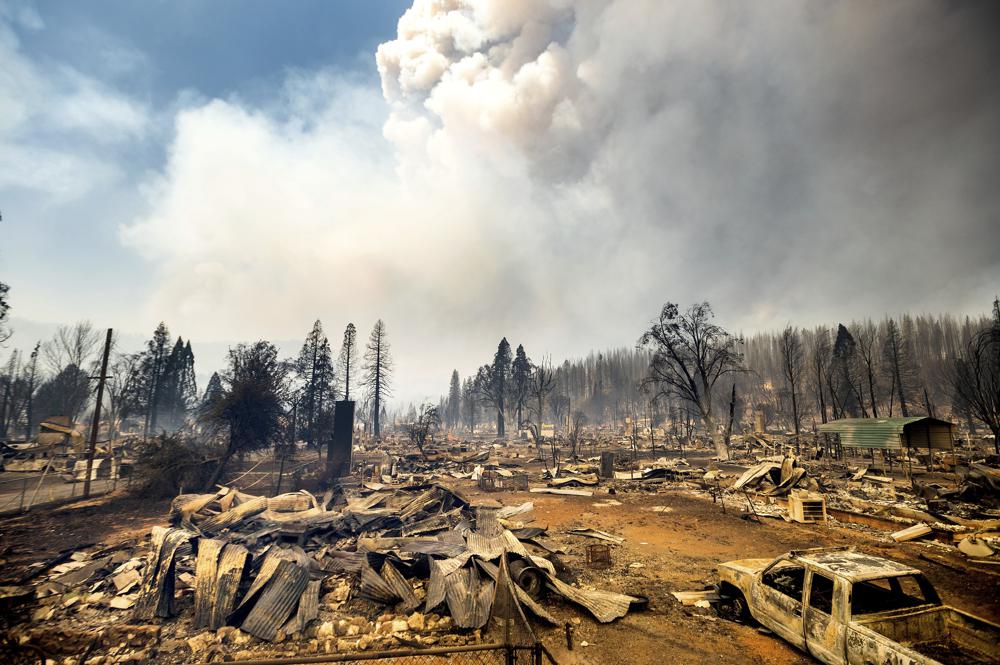
The fire remained at 35% contained Friday morning and now spans an area of 676 square miles (1,751 square kilometers). No injuries or deaths have been reported but the fire continued to threaten more than 10,000 homes.
Officials have not yet assessed the number of destroyed buildings, but Plumas County Sheriff Todd Johns estimated on Thursday that “well over” 100 homes burned in and near the town. […]
“We’re seeing truly frightening fire behavior,” said Chris Carlton, supervisor for Plumas National Forest. “We really are in uncharted territory.”
Heat waves and historic drought tied to climate change have made wildfires harder to fight in the American West. Scientists say climate change has made the region much warmer and drier in the past 30 years and will continue to make weather more extreme and wildfires more frequent and destructive. […]
Gorman said she asks herself how another California town could be reduced to ashes.
“That’s what I keep thinking. It’s happening, again,” said Gorman. “It’s unfathomable.” [more]
